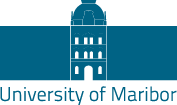The COVID-19 pandemic has had both a direct and an indirect impact on English Studies. If sometimes only for a limited time, the pandemic changed the way English was taught and learned in formal and informal settings; it gave rise to the use of technology and the new media in previously unforeseen ways, and in general left a “pandemic” imprint on English language, literature, and culture. The question is how strong this imprint will be. What will be the lasting consequences of the pandemic—if any? Will teaching English ever be the same as before? Did the technology affect the ways in which we communicate in English today? Did social isolation help revive literature? How did authors respond to the pandemic? What impact does the rapid development of language technologies and artificial intelligence have on Modern English?
These and other related questions will be addressed at the 6th International Conference of the Slovene Association for the Study of English (SDAŠ), entitled:
These and other related questions will be addressed at the 6th International Conference of the Slovene Association for the Study of English (SDAŠ), entitled:
Absolutely Gabulous: Celebrating English Studies for the 21st Century
The conference will take place on 14-16 September 2023 at the University of Maribor, Slovenia.
We are pleased to confirm the following plenary speakers:
Michael Toolan
is Professor Emeritus of English Language, University of Birmingham. He has researched and published widely, mostly concerning literary stylistics and narrative analysis. He was editor of the Journal of Literary Semantics for nearly twenty years, and has served as Chair of the International Association for Literary Semantics and of the Poetics and Linguistics Association (PALA). His most recent monographs are Making sense of narrative text: situation, repetition, and mental picturing (Routledge 2016), and The Language of Inequality in the News: A Discourse Analytic Approach (CUP, 2018). In retirement he is trying to write creatively.
is Professor Emeritus of English Language, University of Birmingham. He has researched and published widely, mostly concerning literary stylistics and narrative analysis. He was editor of the Journal of Literary Semantics for nearly twenty years, and has served as Chair of the International Association for Literary Semantics and of the Poetics and Linguistics Association (PALA). His most recent monographs are Making sense of narrative text: situation, repetition, and mental picturing (Routledge 2016), and The Language of Inequality in the News: A Discourse Analytic Approach (CUP, 2018). In retirement he is trying to write creatively.
Manuela Schlick
is post-doctoral researcher in English Language Teaching Methodology at the University of Vienna. Since her first publication on teacher responsibility and professional competences, her research interest has been teachers’ professional development and what education can do to make English language learning and teaching a meaningful and empowering experience. She is the author of "Professional Teacher Language" (Orbis Scholae, 2022). As a trained Montessori educator, she also publishes on learning material, digital education, and differentiation in foreign language learning. She has co-organized international conferences (Second Language Teacher Education, Vienna 2022) and symposia (Language of Reflection – Reflection of Language, Brno/Vienna 2020) on issues involving the education of language teachers and chairs the RDC Empowering Teacher Education for the Association of Teacher Educators in Europe.
is post-doctoral researcher in English Language Teaching Methodology at the University of Vienna. Since her first publication on teacher responsibility and professional competences, her research interest has been teachers’ professional development and what education can do to make English language learning and teaching a meaningful and empowering experience. She is the author of "Professional Teacher Language" (Orbis Scholae, 2022). As a trained Montessori educator, she also publishes on learning material, digital education, and differentiation in foreign language learning. She has co-organized international conferences (Second Language Teacher Education, Vienna 2022) and symposia (Language of Reflection – Reflection of Language, Brno/Vienna 2020) on issues involving the education of language teachers and chairs the RDC Empowering Teacher Education for the Association of Teacher Educators in Europe.
Michelle Gadpaille
once thought of herself as a teacher of “English” and “Literature”. Now, however, as a Professor of English and American Studies at the University of Maribor, she realizes that she deals in “Englishes” and “Literatures.” She is the author of works on Canadian studies (The Canadian Short Story, 1988; As She Should Be: Codes of Conduct in Early Canadian Women’s Writing, 2010); Cultural studies (“Eating Dirt, Being Dirt: Backgrounds to the Story of Slavery”, 2014; The Ethical Atlantic: Advocacy Networking and the Slavery Narrative, 2019) and the co-editor of Engendering Difference: Sexism, Power and Politics (2018) and Words, Music and Gender (2020).
once thought of herself as a teacher of “English” and “Literature”. Now, however, as a Professor of English and American Studies at the University of Maribor, she realizes that she deals in “Englishes” and “Literatures.” She is the author of works on Canadian studies (The Canadian Short Story, 1988; As She Should Be: Codes of Conduct in Early Canadian Women’s Writing, 2010); Cultural studies (“Eating Dirt, Being Dirt: Backgrounds to the Story of Slavery”, 2014; The Ethical Atlantic: Advocacy Networking and the Slavery Narrative, 2019) and the co-editor of Engendering Difference: Sexism, Power and Politics (2018) and Words, Music and Gender (2020).
Submit a proposal
|
You are welcome to submit a proposal for a 20-minute presentation (including 5-minute discussion) on, but not limited to, the following areas:
• English language;
• Literatures in English; • English Language Teaching; • Cultural Studies; • Translation Studies; • Stylistics; • English Studies and AI; • Or other related (sub)disciplines. |
We also welcome proposals for special panels (three speakers with a tight focus).
Abstracts of between 200 and 300 words can be submitted online: The due date for the submission of abstracts is extended to 11 June 2023. Notification of acceptance: by 15 June 2023.
|




